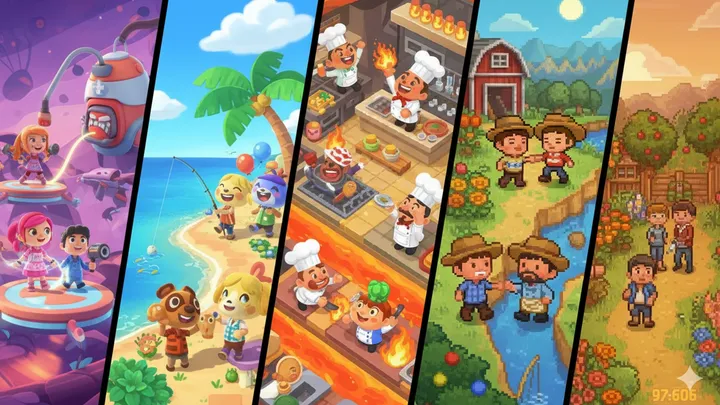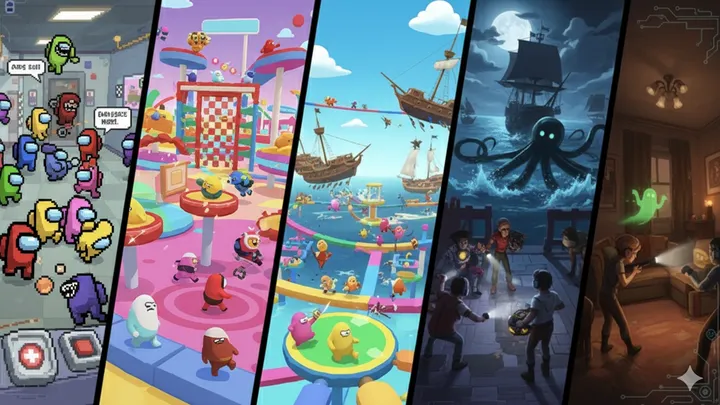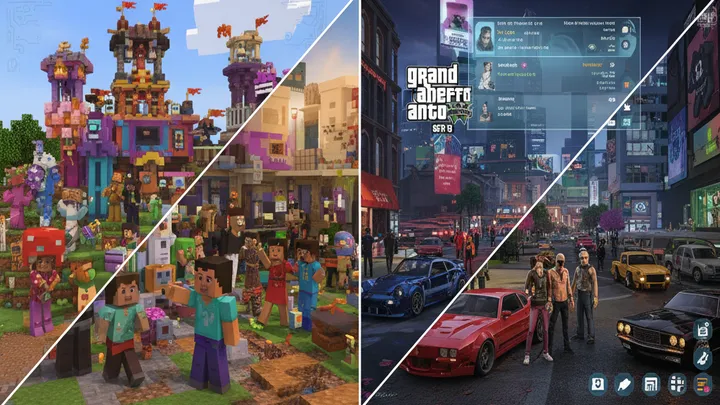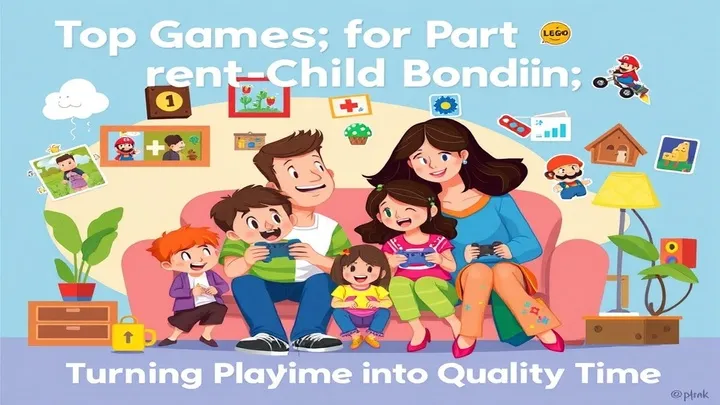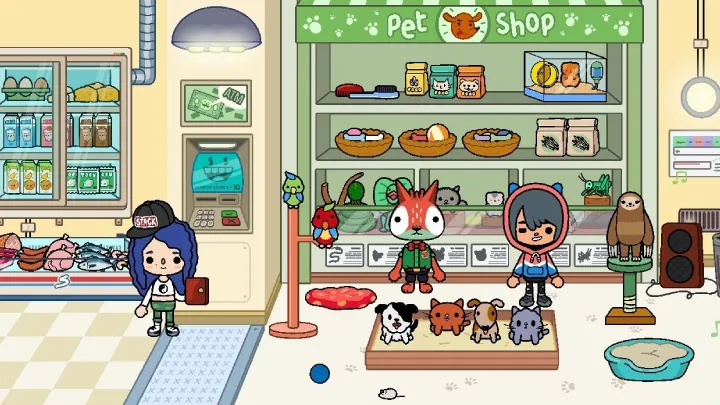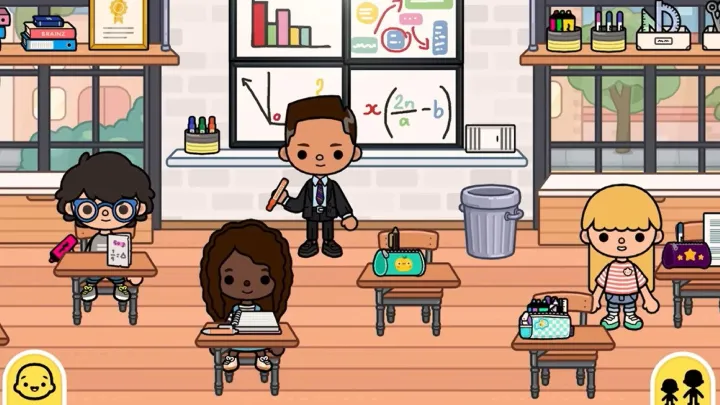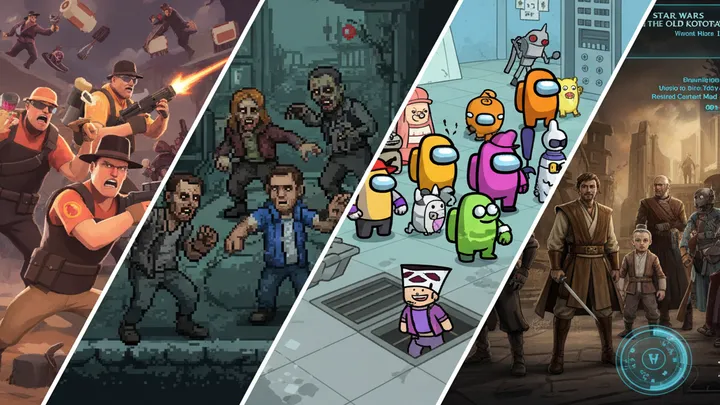Introduction
In today’s digital era, video games often get labeled as a distraction, a waste of time, or something that distances kids from their parents. Yet, when chosen carefully, games can become a powerful bridge across generations. They can spark laughter, teamwork, creativity, and heartfelt conversations between parents and children. Far from being isolating, games can be an opportunity to learn, to bond, and to build unforgettable family memories.
This article explores the best games for parent–child bonding, grouped into three categories: light and creative games, adventurous exploration titles, and fun cooperative/competitive experiences. We’ll discuss what makes each game special, how to play them as a family, and the lasting benefits of sharing gaming moments together.
Criteria for Choosing Parent–Child Games
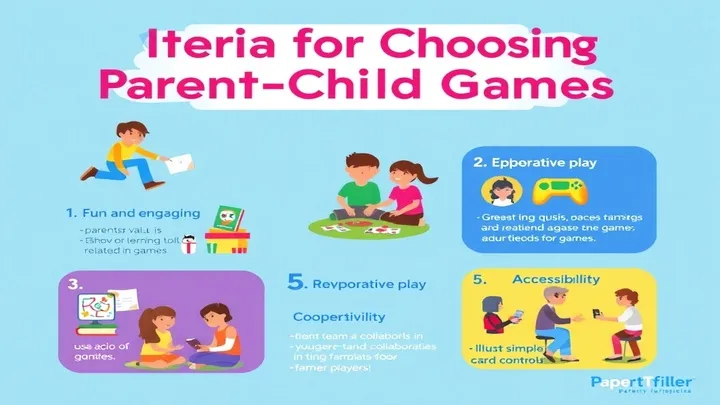
Before diving into the list, let’s clarify the key qualities that make a game truly great for family bonding:
- Accessibility & Simplicity – Games that are easy to learn and intuitive for kids and parents alike.
- Cooperative or Shared Play – Titles that encourage working together toward a common goal rather than constant head-to-head rivalry.
- Creativity & Exploration – Games where players can build, design, or discover worlds together.
- Adjustable Challenge – Difficulty that can scale with age and skill level, ensuring no one feels left out.
- Skill Development – Games that encourage patience, teamwork, logic, or creativity.
- Emotional Connection – Experiences that encourage storytelling, laughter, or meaningful conversations.
Category 1: Lighthearted & Creative Games
1. My Time at Portia
- Platform: PC, Console, Mobile
- Overview: A cozy life-simulation game where you inherit a workshop, craft items, build, farm, and explore.
- Why It Works: Parents and kids can collaborate on building projects, raising animals, or decorating spaces. It’s a great balance between creativity and light adventure.
- Bonding Tip: Split roles—let your child handle farming while you manage crafting. Compare designs or compete playfully on who makes the coziest space.
2. Spiritfarer
- Platform: PC, Console, Switch
- Overview: A touching story-driven game where you care for spirits on their journey to the afterlife.
- Why It Works: Emotional depth encourages family conversations about kindness, empathy, and even themes of loss.
- Bonding Tip: Cook meals together, upgrade the boat as a team, and reflect on the story’s emotional lessons after each session.
3. Garden Paws
- Platform: PC, Switch
- Overview: A blend of farming, shopkeeping, and village-building in a charming environment.
- Why It Works: Its colorful visuals and varied activities appeal to kids while still engaging adults.
- Bonding Tip: Assign responsibilities—one runs the shop, the other tends crops. Share profits and decorate together.
4. Toca Life World
- Platform: Mobile
- Overview: An open-ended world where kids can design characters, create stories, and roleplay.
- Why It Works: Endless creativity lets families invent silly or meaningful stories together.
- Bonding Tip: Create themed scenarios—like running a family café or organizing a community event. Record and share stories for fun memories.
Category 2: Adventure & Exploration Games
5. Journey
- Platform: PC, PlayStation, Mobile
- Overview: A breathtaking, wordless adventure through deserts, ruins, and mountains.
- Why It Works: Its beauty and simplicity spark reflection and wonder, perfect for parents and children to share together.
- Bonding Tip: Take turns guiding the character and discuss feelings evoked by each scene.
6. Unravel Two
- Platform: PC, Console
- Overview: A puzzle-platformer starring two yarn creatures connected by a thread.
- Why It Works: Requires true teamwork—players must coordinate to solve challenges.
- Bonding Tip: Switch roles often and talk through puzzles to encourage communication.
7. Luigi’s Mansion 3
- Platform: Switch
- Overview: A whimsical adventure exploring a haunted hotel filled with puzzles and silly ghosts.
- Why It Works: Lighthearted “spooky fun” with plenty of cooperative elements.
- Bonding Tip: Let your child spot clues while you control Luigi, or reverse roles to build confidence.
8. Spirit of the North
- Platform: PC, Console
- Overview: A calm exploration game where players guide a mystical fox through nature-filled landscapes.
- Why It Works: Meditative pacing encourages quiet conversations and appreciation for nature.
- Bonding Tip: Alternate control and discuss what the environments remind you of in real life.
Category 3: Cooperative & Competitive Fun
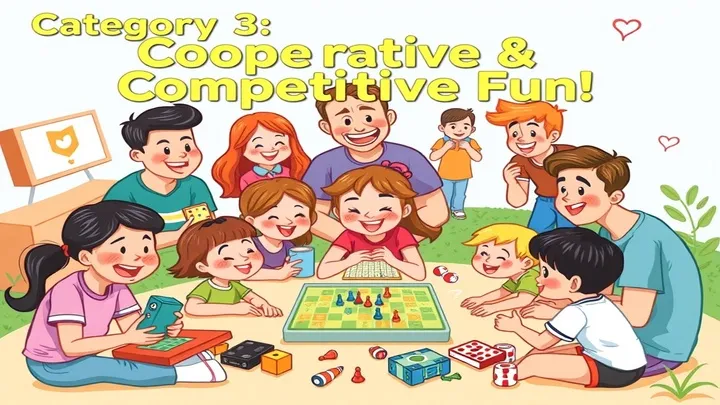
9. Overcooked! All You Can Eat
- Platform: PC, Console, Switch
- Overview: A frantic cooking game where players juggle preparing meals in chaotic kitchens.
- Why It Works: It’s hilarious, challenging, and demands coordination.
- Bonding Tip: Set ground rules for patience—laugh at mistakes rather than get frustrated. Celebrate victories together.
10. Mario Kart 8 Deluxe
- Platform: Switch
- Overview: The ultimate family racing game with vibrant tracks, wacky items, and tons of laughs.
- Why It Works: Accessible for all ages while still offering depth for parents.
- Bonding Tip: Use handicaps or team races to keep things balanced. Relive funny crashes together afterward.
11. Rayman Legends
- Platform: PC, Console, Switch
- Overview: A colorful, music-infused platformer perfect for cooperative play.
- Why It Works: Whimsical and fast-paced, it rewards teamwork without punishing mistakes too harshly.
- Bonding Tip: Encourage your child to take the lead in tricky sections while you provide backup.
12. Just Dance (Series)
- Platform: Multiple
- Overview: A motion-based dance game where players mimic choreographed moves to popular songs.
- Why It Works: Gets the family moving, laughing, and exercising together.
- Bonding Tip: Create mini competitions or family dance-offs to keep energy high.
13. Mario + Rabbids Kingdom Battle
- Platform: Switch
- Overview: A quirky turn-based strategy game blending humor with thoughtful gameplay.
- Why It Works: Teaches kids planning and problem-solving in a lighthearted package.
- Bonding Tip: Strategize together, letting your child suggest moves before committing.
Benefits of Playing Games Together
- Stronger Communication – Parents explain, kids ask, everyone listens and learns.
- Skill Development – Kids learn patience, problem-solving, teamwork, and creativity.
- Stress Relief – Laughter-filled sessions help both parents and kids unwind.
- Memorable Moments – Shared victories and silly failures become family stories.
- Encourages Creativity – Open-ended games expand imagination.
- Promotes Responsibility & Teamwork – Shared goals in-game translate to life lessons outside the screen.
Tips for Effective Parent–Child Gaming
- Choose Age-Appropriate Games – Ask your child what themes they enjoy.
- Set Healthy Limits – Balance screen time with outdoor activities.
- Stay Positive – Use mistakes as teaching moments, not scolding opportunities.
- Divide Responsibilities – Ensure everyone has a meaningful role in co-op games.
- Reflect After Play – Talk about favorite parts and lessons learned.
- Connect Gaming to Real Life – Plant a garden after farming games, cook meals inspired by in-game recipes, or go for a family nature walk after an exploration game.
Bonus Game Suggestions
- A Way Out – A cinematic co-op adventure ideal for older kids.
- Portal 2 – Brain-teasing puzzles encourage collaboration.
- Don’t Starve Together – A survival challenge for tweens/teens.
- LittleBigPlanet 3 – Creativity-driven platforming and community-made levels.
- Splatoon 2 – Fun, paint-filled battles without violence.
Conclusion
Video games, when chosen wisely, aren’t barriers to connection—they’re bridges. They can spark laughter, teamwork, and meaningful conversations between parents and kids. From racing chaos in Mario Kart to heartfelt lessons in Spiritfarer, these shared moments become the stories children carry into adulthood.









